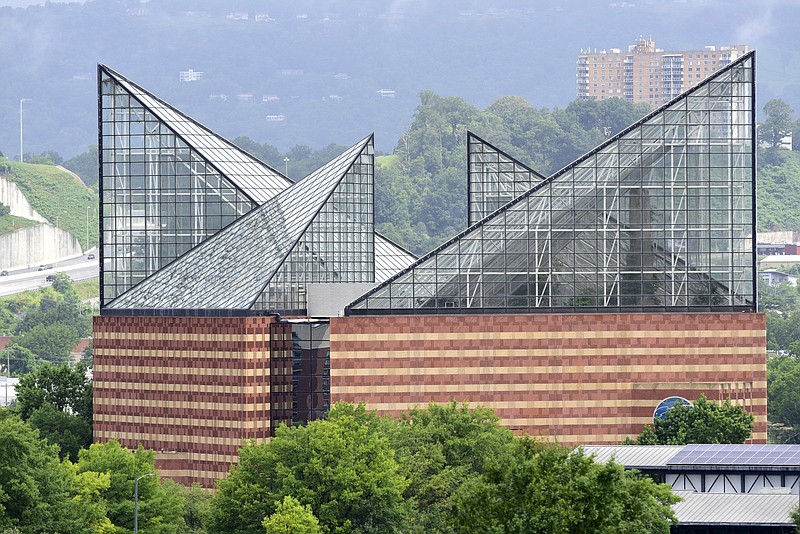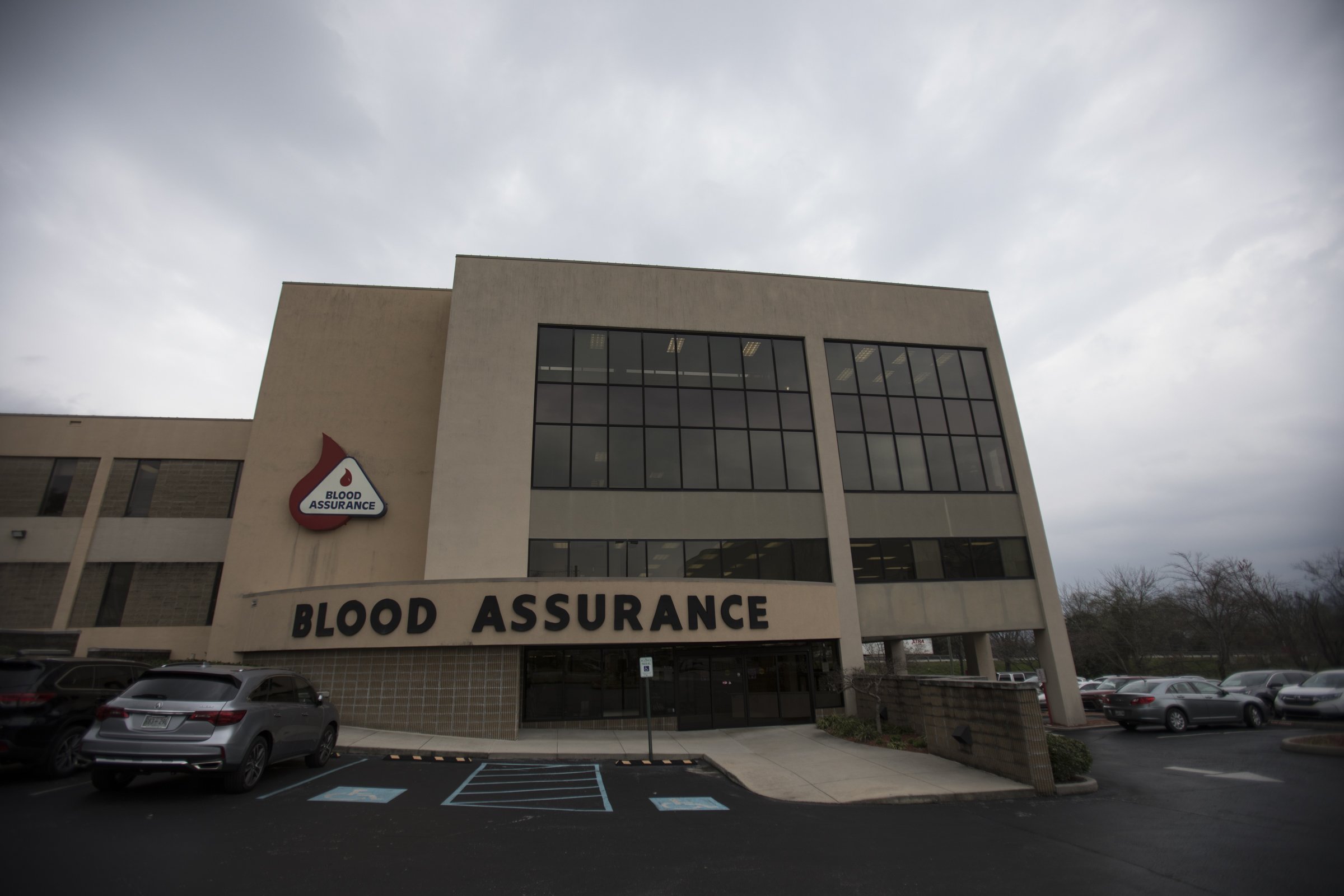When schools, colleges and many businesses shut down in March, Blood Assurance was forced to park its mobile blood donation buses and limit some of its operations.
But with the aid of a federal loan program adopted to try to ease the economic dislocation from the pandemic shutdowns, the nonprofit agency kept its entire 226-employee staff this spring and sustained its service during the downturn while it pivoted its business model.
"We were able to be flexible and agile enough to create even connoisseur-type blood drives to keep our supplies of particular blood types to meet the needs of area hospitals and to use this period to train and redeploy our staff in different tasks rather than to lay anyone off," said JB Gaskins, CEO of Blood Assurance in Chattanooga. "The Payroll Protection Program allowed us to keep our staff in place because if we had laid these people off there is no way we would have been able to keep a safe and adequate blood supply on the shelf from this area."
(READ MORE: Small business aid went beyond hard-hit companies, data show)
The government's Payroll Protection Program was designed as a Small Business Administration lending program to help minimize the number of layoffs by small businesses hurt by the coronavirus pandemic. But like Blood Assurance, the recipients included many you probably wouldn't have expected from the SBA, which typically loans money only to commercial businesses.
In Chattanooga and Cleveland, Tennessee, the Payroll Protection Plan gave loans from $1 million to $10 million each to 15 nonprofit groups, including the Tennessee Aquarium, the Church of God and Girls Preparatory School. Many of Chattanooga's biggest law firms, medical practices, car dealers and logistics companies also obtained the low-interest or forgivable loans this spring to help keep their staffs in place when courts were shut down, hospitals suspended elective surgery and car buyers stayed off the road.
Five area companies got more than $5 million in PPP loans or grants, including the electrical contractor Adman Electric, box manufacturer Southern Champion Tray, hotel developer Vision Hospitality Group, security firm Metropolitan Security, and Credit Corp. in Cleveland, Tenn.
Another 32 local companies got loans between $2 million and $5 million and another 73 businesses got loans from $1 million to $2 million in Chattanooga and Cleveland.
Nationwide, the recipients included Kanye West's clothing line, the sculptor Jeff Koons and the Girl Scouts.
All told, the Treasury Department's Paycheck Protection Program authorized $520 billion for nearly 5 million mostly small businesses and nonprofits. On Monday, the government released the names and some other details of recipients who were approved for $150,000 or more.
(READ MORE: Kanye West? The Girl Scouts? Hedge funds? All got PPP loans)
Economists generally credit the program with preventing the job market meltdown this spring from becoming even worse. More than 22 million jobs were lost in March and April. But roughly one-third of them were regained in May and June - a faster rebound than many analysts had expected.
Dr. Raphael Bostic, the head of the Atlanta Fed, told Tennessee business leaders at the Chattanooga Chamber of Commerce and the Tennessee Business Roundtable on Tuesday that the massive stimulus loan program helped avoid an even worse economic downturn this spring even though unemployment in May still jumped to its highest level since the Great Depression in the 1930s.
"The PPP (Payroll Protection Program) loans helped businesses keep their business connections and staff in place," Bostic said. "We went into this pandemic with a strong economy so we are positioned for a recovery if we can bring the virus under control."
The government acted quickly in early April, with Treasury lending the first $349 billion in just two weeks. But the lending program - the biggest in the history of the Small Business Administration - got off to a rocky start, one marked by confusion and difficulty for many companies that sought loans.
"The process was messy, and they couldn't target it as much," Diane Swonk, chief economist at accounting firm Grant Thornton, said of Treasury.
The PPP loans have an interest rate of just 1% and repayment is deferred for six months. If a borrower maintains its staff and spends most of the PPP funds on payroll and the rest on expenses such as rent or operations, the loan can be forgiven and essentially converted into a grant for the business.
As much as $273 million in federal coronavirus aid was awarded to more than 100 companies that are owned or operated by major donors to President Donald Trump's election efforts, according to an Associated Press analysis of federal data. Among such companies was Credit Corp., in Cleveland, which is headed by Trump supporter Alan Jones, president of Check Into Cash, the nation's biggest privately owned payday lender.
All told, the Trump supporters who run these companies have contributed at least $11.1 million since May 2015 to Trump's campaign committees, the Republican National Committee and America First Action, a super PAC that has been endorsed by Trump, the AP review found. Each donor gave at least $20,000.
There is no evidence the companies received favorable treatment as a result of their ties to Trump, and the businesses account for just a fraction of the overall spending under the program.
But the distribution of relief money is coming under heightened scrutiny after the Trump administration initially refused to reveal which companies received loans, only to cave under growing bipartisan pressure from Congress. On Monday, the Treasury Department released the names of companies that received loans that were greater than $150,000, though they didn't release specific dollar figures and instead gave ranges for the dollar value of the aid.
"The PPP was a huge success and saved 51 million American jobs, including at Joe Biden's old law firm and many companies associated with Obama Administration alums," said Trump campaign spokeswoman Samantha Zager. "When the rent or mortgage was due, tens of millions of Americans kept receiving paychecks thanks to President Trump's leadership."
Government watchdog groups say they have little faith in the administration conducting oversight of the program, noting Trump has ousted numerous inspectors general and has broadly resisted efforts to add transparency.
"When you don't have proper safeguards, such as timely disclosure and effective inspectors general, then all these things look more suspicious and raise more questions," said Larry Noble, a former general counsel at the Federal Election Commission. "When you see these people getting assistance quickly and they have contributed to the campaign, then it is going to raise questions."
Companies typically must have fewer than 500 workers to qualify for the Paycheck Protection Program. About $130 billion was unclaimed as the application deadline closed June 30.
With money still available, Congress voted to extend the program just as it was expiring, setting a new date of Aug. 8.
The public may never know the identity of more than 80% of the nearly 5 million beneficiaries to date because the administration has refused to release details on loans under $150,000 - the vast majority of borrowers.
That secrecy spurred an open-records lawsuit by a group of news organizations, including the AP.
WEHCO Media, Inc., the parent company of the Chattanooga Times Free Press, received a $12.3 million PPP loan. The company owns nine other daily newspapers and eight weekly newspapers and has a cable television business. It has about 1,300 employees, about 900 of which work at the company's newspapers.
The Associated Press contributed to this report.

